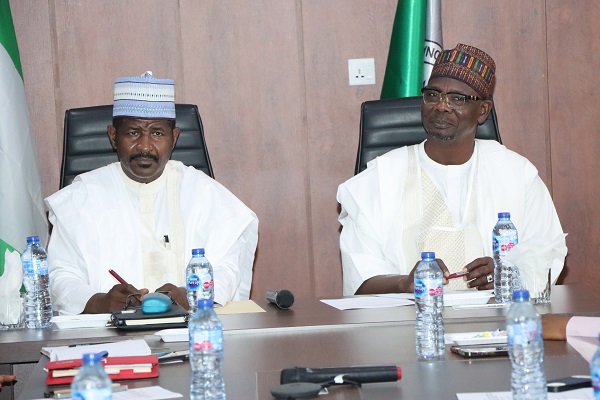
The Nasarawa State government and the National Agency for Science and Engineering Infrastructure (NASENI) are poised to collaborate on a lithium processing policy that will see locally mined lithium refined in the country, instead of being exported in its raw form.
This initiative aligns with NASENI’s commitment to fostering the processing of strategic solid minerals, particularly to facilitate the local production of batteries for electric vehicles and energy storage applications.
The collaboration was unveiled during a courtesy visit by the Executive Governor of Nasarawa State, Engr. Abdullahi A. Sule, to the executive vice-chairman and CEO of NASENI, Dr. Bashir Gwandu at the agency’s headquarters in Abuja over the weekend.
Nasarawa State is recognised as having one of Nigeria’s largest lithium deposits.
NASENI’s recent efforts to attract investors and Nigerian lithium buyers globally to collaborate on local lithium processing have gained attention. This includes processing lithium from mineral extraction to final battery products for local use and export.
Gwandu revealed that NASENI intends to collaborate with other government agencies like the Rural Electricity Agency (REA), Nigerian Geological Survey Agency (NGSA) and other investing institutions in this endeavour. He expressed satisfaction with Governor Sule’s willingness to collaborate in this regard.
Governor Sule highlighted the interest of several companies in processing substantial quantities of lithium in Nasarawa State, potentially reaching 6,000 tonnes per day. He emphasised the need for proper coordination across states like Kebbi and Kwara to position Nigeria as a significant global lithium producer.
Sule termed this phenomenon “Lithium Rush” in his state, driven by the surge in lithium prices from $6,000 to $78,000 per metric tonne. He stressed the importance of synergy with NASENI for comprehensive exploration, extraction and processing.
He also suggested that NASENI’s Solar in Gora could potentially be repurposed as a lithium processing and battery production plant, leveraging its proximity to raw materials and NASENI’s Solid Minerals Institute.
Sule pledged his support for the agency and proposed a “Lithium Rush Summit” to enhance collaboration further. He recommended the use of the state’s cargo airport for product evacuation and discussed NASENI’s plans for an MRO/ARO to service the aerospace industry.
Gwandu confirmed that NASENI does not intend to build an airport but is focused on establishing an MRO/ARO facility for aircraft maintenance and parts production, likely to be located in Abuja.
The EVC affirmed NASENI’s commitment to active participation in state conferences related to lithium. He highlighted the availability of industrial machinery, equipment and a skilled workforce within NASENI, crucial for Nigeria’s industrialisation and diversified economy. Gwandu requested Governor Sule’s support in representing NASENI and facilitating the release of held-up funds through the Nigeria Governors’ Forum (NGF).
Furthermore, he stressed that the governors’ support is pivotal to NASENI’s ability to fulfill its science, technology and innovation (STI) mandate for state-level industrial development.


